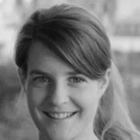 |
| INVITED |
|
 |
| . |
|
|
Monika Aidelsburger
Ludwig-Maximilians-University Munich, Germany
Invited – Plenary Session
|
|
|
|
|
 |
| PLENARY |
|
 |
| . |
|
|
Jerry Chow
IBM, USA
Plenary Talk
|
|
|
|
|
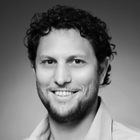 |
INVITED
Industrial Forum |
|
 |
| . |
|
|
Yonatan Cohen
Quantum Machines, Israel
Invited - Industrial Forum
Dr. Yonatan Cohen - Quantum Machines - Entrepreneur; co-founder and ex-managing director of Weizmann Institute’s entrepreneurship program; completed his MSc and PhD in Prof. Moty Heiblum’s lab at the Weizmann Institute of Science in Israel working on quantum electronics, superconducting-semiconducting devices, and microfabrication; published works in peer-reviewed journals; completed BSc in physics and math at the University of Washington; received the Ruth and Prof. Abraham (Edek) Blaugrund Prize for academic excellence (2018), awarded yearly to students from the Weizmann Institute of Science. Currently CTO of one of the leading companies working in quantum control.
|
|
|
|
|
 |
PANELIST
Industrial Forum |
|
 |
| . |
|
|
Yonatan Cohen
Quantum Machines, Israel
PANELIST - Industrial Forum
Dr. Yonatan Cohen - Quantum Machines - Entrepreneur; co-founder and ex-managing director of Weizmann Institute’s entrepreneurship program; completed his MSc and PhD in Prof. Moty Heiblum’s lab at the Weizmann Institute of Science in Israel working on quantum electronics, superconducting-semiconducting devices, and microfabrication; published works in peer-reviewed journals; completed BSc in physics and math at the University of Washington; received the Ruth and Prof. Abraham (Edek) Blaugrund Prize for academic excellence (2018), awarded yearly to students from the Weizmann Institute of Science. Currently CTO of one of the leading companies working in quantum control.
|
|
|
|
|
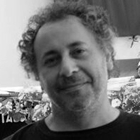 |
PANELIST
Industrial Forum |
|
 |
| . |
|
|
Fernando de la Iglesia
Quside Technologies S.L., Spain
PANELIST - Industrial Forum
|
|
|
|
|
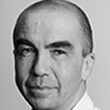 |
| INVITED |
|
 |
| . |
|
|
Hugues de Riedmatten
ICFO, Spain
Invited – Plenary Session
|
|
|
|
|
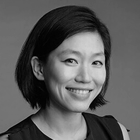 |
| INVITED |
|
 |
| . |
|
|
Yvonne Gao
NUS, Singapore
Invited – Plenary Session
Yvonne is a Principal Investigator in the Centre for Quantum Technologies and a Presidential Young Professor in the Department of Physics, National University of Singapore. Her team works on building robust quantum hardware using superconducting microwave circuits. Their devices provide useful avenues to develop novel techniques for quantum information processing as well as to explore interesting effects in quantum physics. Yvonne is a recipient of the Singapore Young Scientist Award, Singapore National Research Foundation Fellowship, and MIT Tech Review’s Innovator’s Under 35 (Asia-Pacific) award
|
|
|
|
|
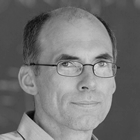 |
| INVITED |
|
 |
| . |
|
|
Géza Giedke
DIPC, Spain
Invited – Plenary Session
Geza Giedke is an Ikerbasque Research Professor at the Donostia International Physics Center (DIPC) in San Sebastián, Basque Country, Spain. He studied physics in Tübingen and Innsbruck, where he obtained his PhD in 2001 working in the group of Ignacio Cirac and Peter Zoller. After postdoctoral stays at the ETH Zurich (with Atac Imamoglu) and at the MPI for Quantum Optics in Garching (with Ignacio Cirac) he moved DIPC in 2014. His research interests comprise quantum information theory, in particular the implementation of QIP with spin qubits in solid-state systems and entanglement theory.
|
|
|
|
|
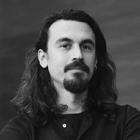 |
INVITED
Industrial Forum |
|
 |
| . |
|
|
Yemliha Bilal Kalyoncu
Qblox BV, The Netherlands
Invited - Industrial Forum
Bilal is a physicist and spends effort in bringing quantum computers to reality. As the lead application scientist of Qblox, he is specifically keen on understanding the requirements of qubit control and readout, and on matching them with Qblox's solutions. He started his studies at Bogazici university, Turkey and completed his PhD in experimental solid state physics at the University of Basel, Switzerland. He patented two applications in nanomagnetism and has experience in nanofabrication, quantum transport in 2D materials and cryogenic methods. After his PhD, he started his professional career in the scientific instruments industry to find solutions to challenging problems of experimental physics
|
|
|
|
|
 |
PANELIST
Industrial Forum |
|
 |
| . |
|
|
Yemliha Bilal Kalyoncu
Qblox BV, The Netherlands
PANELIST - Industrial Forum
|
|
|
|
|
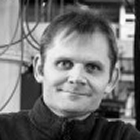 |
| INVITED |
|
 |
| . |
|
|
Georgios Katsaros
IST Austria, Austria
Invited – Plenary Session
Georgios Katsaros completed his BSc in Physics at the University of Patras in Greece. After a one-year research stay at NCSR Demokritos in Athens, he moved to the Max Planck Institute for Solid State Research in Stuttgart to perform his PhD thesis in the group of Klaus Kern. His work focused on the structural properties of self-assembled Ge islands. After his PhD he decided to switch research field and he moved to the group of Silvano De Franceschi at CEA Grenoble. During his postdoc time he studied the physics of holes in Ge nanostructures as first theory papers suggested that hole spins might be very promising for the realization of qubits. Since 2016, and after group leader positions at IFW Dresden and JKU Linz, he is the principal investigator of the Nanoelectronics group at IST Austria ( https://nanoelectronicsgroup.blog//). His group is studying spin qubits in two dimensional Ge heterostructures and in parallel hybrid semiconductor-superconductor systems are investigated. |
|
|
|
|
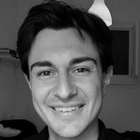 |
PANELIST
Industrial Forum |
|
 |
| . |
|
|
Richard Kienhoefer
Qureca, Spain
PANELIST - Industrial Forum
|
|
|
|
|
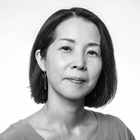 |
| INVITED |
|
 |
| . |
|
|
Eun-Ah Kim
Cornell University, USA
Invited – Plenary Session
|
|
|
|
|
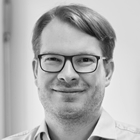 |
INVITED
Industrial Forum |
|
 |
| . |
|
|
Moritz Kirste
Zurich Instruments AG, Switzerland
Invited - Industrial Forum
Moritz Kirste is a team leader for quantum technologies at Zurich Instruments. With his team, he supports customers for quantum computing control systems and is responsible for scientific collaboration projects. As an experimental physicist, he worked on the physical and chemical processes of molecules in the gas phase at the Fritz Haber Institute in Berlin and at the Academia Sinica in Taipei. Moritz worked as a scientific consultant, advising political institutions and companies on innovation policy and technology assessment and he was a data science team lead for the development of client specific business analytics products.
|
|
|
|
|
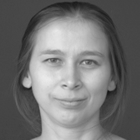 |
INVITED
Industrial Forum |
|
 |
| . |
|
|
Jelena Klinovaja
University of Basel, Switzerland
Invited - Industrial Forum
Jelena Klinovaja received her PhD in Theoretical Physics in 2012 with summa cum laude. In 2013, she was awarded a three-year Harvard Fellowship to perform independent research in the area of the theoretical quantum condensed matter physics. Klinovaja was appointed as a tenure track assistant professor at the Department of Physics at the University of Basel in 2014. In February 2019 she was tenured and promoted to associate professor. Since 2020, she is a Deputy Co-Director of the NCCR SPIN (National Centre of Competence in Research: Spin Qubits in Silicon). In her career, she was offered several prestigious fellowships (in 2013, Pappalardo Fellowship from MIT and Yale Prize Postdoctoral Fellowship) and received research prizes such as the Swiss Physical Society Prize 2013 in Condensed Matter Physics (sponsored by IBM), Prize of the Faculty of Natural Sciences, University of Basel, for best PhD work, and Camille- und Henry Dreyfus scholarship. In 2017, she was awarded the prestigious Starting Grant of the European Research Council (ERC). Later, in 2022, she was awarded the Consolidator Grant of the European Research Council (ERC).
|
|
|
|
|
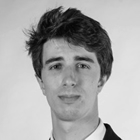 |
INVITED
Industrial Forum |
|
 |
| . |
|
|
Lucas Leclerc
PASQAL, France
Invited - Industrial Forum
2020-Now : R&D Quantum Software Engineer at Pasqal, France.
2021-Now : PhD student at Université Paris Saclay - Laboratoire Charles Fabry in the group of Antoine Browaeys and Thierry Lahaye.
2019-2020 : MSc in Theoretical Physics at Imperial College London (Master Thesis on Quantum Optimal Control in the group of Florian Mintert)
2017-2020 : Engineering degree from CentraleSupélec, France.
My work at Pasqal consists in working at the interface between hardware and theory, designing ready-to-implement quantum algorithms and making detailled simulations of the physics happening inside a neutral atom processor.
Latest relevant works :
Quantum Feature Maps for Graph Machine Learning on a Neutral Atom Quantum Processor, B. Albrecht et al., Arxiv, 2022.
Continuous Symmetry Breaking in a Two-dimensional Rydberg Array, C. Chen et al., Nature, 2022.
Financial Risk Management on a Neutral Atom Quantum Processor, L. Leclerc et al., Arxiv, 2022.
|
|
|
|
|
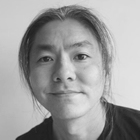 |
| INVITED |
|
 |
| . |
|
|
Eduardo Lee
IFIMAC / UAM, Spain
Invited – Plenary Session
Eduardo Lee obtained his PhD in physics from EPF Lausanne for the thesis “Scanning photocurrent microscopy of carbon nanostructures” developed at the Max Planck Institute for Solid State Research in Stuttgart, Germany. He then moved to the French Alternative Energies and Atomic Energy Commission (CEA) in Grenoble, France as a postdoctoral fellow, partially funded by a Marie Curie Fellowship. After that, he spent a year at the Institut Neel in Grenoble as a postdoc, before finally joining IFIMAC as a young researcher.
|
|
|
|
|
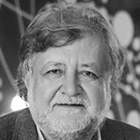 |
| KEYNOTE |
|
 |
| . |
|
|
Maciej Lewenstein
ICFO/ICREA, Spain
Keynote – Plenary Session
Maciej Lewenstein (Warsaw 1955) joined the Centre for Theoretical Physics of the Polish Academy of Sciences in Warsaw in 1980, did Ph.D. in Essen in 1983 with Fritz Haake and habilitated in 1986 in Warsaw. Postdocs at Universität Essen and at Harvard University with Roy J. Glauber (Nobel 2005), a faculty member of CEA in Saclay (1995-1998), and of the Leibniz University Hannover (1998-2005). In 2005 he moved to Catalonia as ICREA Research Professor to lead the quantum optics theory at the Institut de Ciències Fotòniques in Castelldefels. His interests include quantum optics, quantum physics, quantum information, many-body theory, attosecond science, and statistical physics. His other passion is jazz and avant-garde music - he is an acclaimed jazz writer and critic. At ICFO Maciej Lewenstein leads a 25 people team working on the mentioned subjects.
|
|
|
|
|
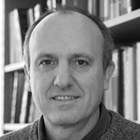 |
| PLENARY |
|
 |
| . |
|
|
Daniel Loss
University of Basel, Switzerland
Plenary Talk
Daniel Loss received his Ph.D. (1985) at the Univ. of Zürich, worked as postdoc with Nobel Laureate A. Leggett in Urbana (1989-1991), and at IBM T.J. Watson Research Center, NY (1991-1993). In 1993 he joined the faculty of SFU in Vancouver, and in 1996 became full Professor in Basel. He works on spin physics, quantum coherence, and topological effects in semiconducting and magnetic nanostructures, and quantum computing. In 2000 he became APS Fellow, in 2014 Member of the German National Academy of Sciences Leopoldina, and in 2021 External Scientific Member of the Max Planck Society. In 2005 he received the Humboldt Research Prize, in 2010 the Marcel Benoist Prize by the Swiss government, in 2014 the Blaise Pascal Medal in Physics, and in 2017 the King Faisal International Prize in Science. He is co-director of the Swiss national center on spin-based quantum computing in semiconductors, a field he pioneered in 1998 together with D. DiVincenzo. Their visionary paper has founded an entirely new field and is one of the highest cited research papers in quantum computing.
|
|
|
|
|
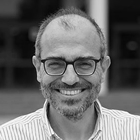 |
| INVITED |
|
 |
| . |
|
|
Fernando Luis
UNIZAR, Spain
Invited – Plenary Session
Fernando Luis is a CSIC research professor at the Institute of Nano and Materials Science (INMA) in Zaragoza. His work has focussed on studying quantum phenomena that magnetic nanomaterials, an in particular magnetic molecules, exhibit near absolute zero. Currently, he leads the experimental activity of the INMA in the field of quantum technologies and coordinates an international collaboration that aims to develop a hybrid quantum processor based on molecular spin qudits and superconducting circuits.
|
|
|
|
|
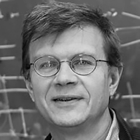 |
| PLENARY |
|
 |
| . |
|
|
Mikhail Lukin
Harvard University, USA
Plenary Talk
Mikhail Lukin received his Ph.D. degree from Texas A&M University in 1998. He has been on the faculty of the Harvard Physics Department since 2001, where he is currently the George Vasmer Leverett Professor of Physics, as well as a co-Director of the Harvard Quantum Initiative in Science and Engineering and a co-Director of the Harvard-MIT Center for Ultracold Atoms.
|
|
|
|
|
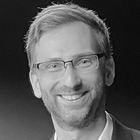 |
KEYNOTE
Industrial Forum |
|
 |
| . |
|
|
Zlatko Minev
IBM Quantum Research, USA
Keynote - Industrial Forum
|
|
|
|
|
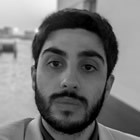 |
PANELIST
Industrial Forum |
|
 |
| . |
|
|
David Morcuende Cantador
Mahou-San Miguel, Spain
PANELIST - Industrial Forum
David is a New Technologies Expert at Mahou, where he focuses on the implementation and exploration of cutting-edge technologies such as artificial intelligence (AI), blockchain, Internet of Things (IoT), and quantum computing. He has successfully completed various quantum computing projects, including the development of a Braket provider plugin for Qiskit, an Iterative Phase Estimation (IPE) tutorial, and a quantum fractals project with an exhibition at the Microscope Gallery in New York. His work has been pivotal in driving innovation at Mahou and ensuring that the company stays at the forefront of technological advancements. In addition to his role at Mahou, David is a well-known Qiskit Advocate, actively engaged in the quantum community by mentoring at QC hackathons, presenting at conferences, and organizing Quantum Madrid events.
|
|
|
|
|
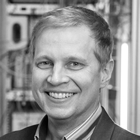 |
| INVITED |
|
 |
| . |
|
|
Mikko Möttönen
Aalto University, Finland
Invited – Plenary Session
Mikko is a renowned researcher in quantum information, especially related to superconducting circuits, and a Professor of Quantum Technology at Aalto University and VTT. He has published more than 140 scientific articles, including four articles in the top journals Nature and Science. His work has been cited more than 8,000 times. He graduated with a doctorate in technology in 2005 from the Department of Applied Physics at the Helsinki University of Technology.
Mikko has distinguished himself in research in both theoretical and experimental quantum physics. Breakthroughs in research have enabled the commercialization of quantum computing and devices, such as spinout of IQM from his research laboratory. Mikko is one of the four Co-Founders of IQM Quantum Computers ( www.meetiqm.com).
Recently, Mikko obtained the Nokia Recognition award, the Väisälä Science Prize, the Innovation Professor Award, and an Honorary Doctorate. |
|
|
|
|
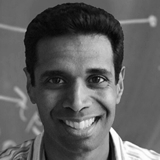 |
| KEYNOTE |
|
 |
| . |
|
|
Chetan Nayak
Microsoft Research, USA
Keynote – Plenary Session
Chetan has been a researcher at Microsoft since 2005. He was born and raised in New York City, where he graduated from Stuyvesant High School in 1988. He received his B.A. from Harvard in 1992 and his Ph.D. from Princeton University in 1996. He was a post-doctoral fellow at the Institute for Theoretical Physics at UCSB from 1996-97. He was a Professor of Physics at UCLA from 1997 through 2006 and at UCSB from 2007 through the present. He was a visiting Professor at Nihon University in Japan in 2002. He is a Fellow of the American Physical Society and a recipient of the Outstanding Young Physicist Award from the American Chapter of the Indian Physics Association, an Alfred P. Sloan Foundation Fellowship, and an NSF Early Career Award. He has been the Principal Research Manager of Microsoft Station Q since 2014.
|
|
|
|
|
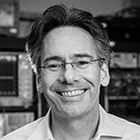 |
| KEYNOTE |
|
 |
| . |
|
|
William Oliver
MIT, USA
Keynote – Plenary Session
William D. Oliver is jointly appointed Professor of Electrical Engineering and Computer Science, Professor of Physics, and Lincoln Laboratory Fellow at the Massachusetts Institute of Technology. He serves as the Director of the Center for Quantum Engineering and as Associate Director of the Research Laboratory of Electronics. He is a Principal Investigator in the Engineering Quantum Systems Group (MIT campus) and the Quantum Information and Integrated Nanosystems Group (MIT Lincoln Laboratory). He provides programmatic and technical leadership targeting the development of quantum and classical high-performance computing technologies. Will’s research interests include the materials growth, fabrication, design, and measurement of superconducting qubits, as well as the development of cryogenic packaging and control electronics involving cryogenic CMOS and single-flux quantum digital logic.
|
|
|
|
|
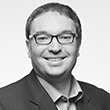 |
INVITED
Industrial Forum |
|
 |
| . |
|
|
Roman Orus
Multiverse Computing, Spain
Invited - Industrial Forum
I am the Scientific Director (CSO) and Cofounder of Multiverse Computing, as well as Ikerbasque research professor at the Donostia International Physics Center (DIPC) in San Sebastián, Spain. After obtaining my degree and PhD in Physics at the University of Barcelona in 2006, I worked as a research fellow at the University of Queensland, Australia, and the Max Planck Institute of Quantum Optics, Germany, as well as a junior professor at Johannes Gutenberg-Universität in Mainz, Germany. I was also visiting professor at the Universitè Paul Sabatier – CNRS, France, and at the DIPC. My research has been recognized by several awards, including a Marie Curie Incoming International Fellowship, and the Early Career Prize (2014) by the European Physical Society. I have written more than 80 scientific articles about quantum research cited around 5500 times, and I am also honorary member of the steering board of the journal Quantum, member of the ‘Quantum for Quants’ (Q4Q) commission of the Quantum World Association, partner at Entanglement Partners, and president of the Specialized Group on Quantum Information at the Spanish Royal Society of Physics.
|
|
|
|
|
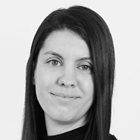 |
PANELIST
Industrial Forum |
|
 |
| . |
|
|
Marta Pascual Estarellas
Qilimanjaro Quantum Tech, Spain
PANELIST - Industrial Forum
|
|
|
|
|
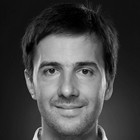 |
| INVITED |
|
 |
| . |
|
|
Ioan Pop
KIT, Germany
Invited – Plenary Session
Ioan Pop was born in 1983 in Romania and he studied physics at the Babes-Bolyai University in Cluj-Napoca, Transylvania, from 2002 to 2006. In 2007, he received his master’s degree in material science and attended a Ph.D. program in physics at the Institut NÉEL, Centre National de la Recherche Scientifique (CNRS) and Université Joseph Fourier in Grenoble, France, where he was conferred his doctorate in 2011. After graduation, Ioan Pop worked as a post-doctoral researcher at Yale University, USA, in the group of Michel Devoret. In 2015 he received the Sofja Kovalevskaja startup award from the Humboldt Foundation, which allowed him to start a new research group at the Karlshruhe Institute of Technology, in Germany. The group specializes in the implementation of superconducting quantum hardware for quantum information processing, amplification and detection.
|
|
|
|
|
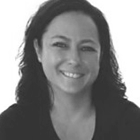 |
PANELIST
Industrial Forum |
|
 |
| . |
|
|
Carmen Reina
Orange, Spain
PANELIST - Industrial Forum
|
|
|
|
|
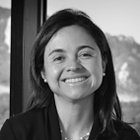 |
| KEYNOTE |
|
 |
| . |
|
|
Ana Maria Rey
University of Colorado, USA
Keynote – Plenary Session
|
|
|
|
|
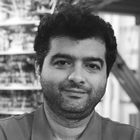 |
KEYNOTE
Industrial Forum |
|
 |
| . |
|
|
Pedram Roushan
Google Inc, USA
Keynote - Industrial Forum
Pedram Roushan received his PhD in 2011 from Princeton University, performing the first scanning tunneling microscopy on the surface of topological insulators. After three years of post-doctoral studies at the University of California, Santa Barbara, in 2014 he joined the Google quantum hardware lab aiming on making a quantum computer. With the Google team in 2019, they performed the first computation on a quantum processor beyond the capability of a supercomputer. The current focus of his research is on studying non-equilibrium phenomena with quantum processors.
|
|
|
|
|
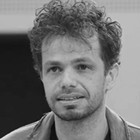 |
| INVITED |
|
 |
| . |
|
|
Giordano Scappucci
TU Delft, The Netherlands
Invited – Plenary Session
2000, MSc, Universita’ La Sapienza Roma, Italy
2004, PhD, Universita’ Roma TRE, Italy
2005, Researcher, University of New South Wales, Centre for Quantum Computing Technology, Australia
2015, Group Leader , QuTech TU Delft
Long-time advocate of the silicon and germanium material system, Dr Giordano Scappucci leads the development of materials for spin-based quantum computing at QuTech, TU Delft. The silicon and germanium-based quantum materials developed by Giordano’s team enabled landmark experiments in the field of quantum information. These quantum materials are also used by many researchers overseas for the development of quantum technologies. Giordano published about 100 journal articles and has given over 50 invited talks at international conferences, universities, research institutes and industry.
|
|
|
|
|
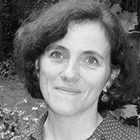 |
| KEYNOTE |
|
 |
| . |
|
|
Pascale Senellart-Mardon
C2N-CNRS-Université Paris Saclay, France
Keynote – Plenary Session
Graduated from École Polytechnique and Doctor in Quantum Physics from Université Paris 6, Pascale Senellart joined the CNRS in 2001. She was appointed senior researcher in 2011 and has been professor of quantum mechanics at Polytechnique since 2014. Her research activity is at the interface between nanosciences, semiconductor physics and quantum optics. Her team developed quantum light sources of unprecedented efficiency and this work was recognised by the CNRS Silver Medal in 2014 and the election as a Fellow of the Optical Society of America (OSA) in 2018. In addition to her research activity, P. Senellart is co-founder of Quandela, a company that sells unique photon sources and is in charge of promoting industrial transfer within the DIM SIRTEQ dedicated to quantum technology in the Île-de-France region. She has been awarded the Grand Prix Mergier-Bourdeix of the French Academy of Sciences in 2021.
|
|
|
|
|
 |
PANELIST
Industrial Forum |
|
 |
| . |
|
|
Pascale Senellart-Mardon
C2N-CNRS-Université Paris Saclay, France
PANELIST - Industrial Forum
Graduated from École Polytechnique and Doctor in Quantum Physics from Université Paris 6, Pascale Senellart joined the CNRS in 2001. She was appointed senior researcher in 2011 and has been professor of quantum mechanics at Polytechnique since 2014. Her research activity is at the interface between nanosciences, semiconductor physics and quantum optics. Her team developed quantum light sources of unprecedented efficiency and this work was recognised by the CNRS Silver Medal in 2014 and the election as a Fellow of the Optical Society of America (OSA) in 2018. In addition to her research activity, P. Senellart is co-founder of Quandela, a company that sells unique photon sources and is in charge of promoting industrial transfer within the DIM SIRTEQ dedicated to quantum technology in the Île-de-France region. She has been awarded the Grand Prix Mergier-Bourdeix of the French Academy of Sciences in 2021.
|
|
|
|
|
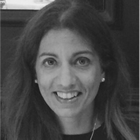 |
PANELIST
Industrial Forum |
|
 |
| . |
|
|
Tanya Suarez
Bluspecs, Spain
PANELIST - Industrial Forum
|
|
|
|
|
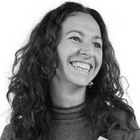 |
| INVITED |
|
 |
| . |
|
|
Costanza Toninelli
Istituto Nazionale di Ottica, CNR-INO, Italy
Invited – Plenary Session
After a master thesis in atomic physics including one year at the Ecole Normal Superièure in Paris, and a PhD in nanophotonics and complex systems in Florence, she was a postdoc fellow at ETH in Zürich, studying single molecule spectroscopy. After receiving the Caroline von Humboldt prize in 2011, Costanza became Researcher at INO-CNR and group leader at LENS. In 2023 Costanza is awarded the ERC consolidator grant for the project QUINTESSEnCE. Her interest focuses on the development of quantum technologies based on the coupling between single-molecule based quantum emitters to nanostructured materials, yielding on-chip single photon sources as well as quantum sensors. She also likes to play with light transport in complex systems and fluorescence-based sensors.
|
|
|
|
|
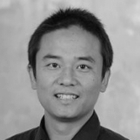 |
| INVITED |
|
 |
| . |
|
|
Binghai Yan
Weizmann Institute of Science, Israel
Invited – Plenary Session
Binghai Yan is an Associate Professor in the department of condensed matter physics at the Weizmann Institute of Science, Israel. He is a theoretical physicist and currently interested in topological materials and topology-induced phenomena. After completing his PhD at Tsinghua University in 2008, he worked as a postdoc at Bremen University and later at Stanford University. During 2012-2016, he was a group leader in the Max Planck Institute in Dresden and started his current position at Weizmann Institute since 2017. He was awarded the ARCHES Prize in Germany in 2013, the Israel Physical Society Prize for Young Scientist in 2017, and recognized as a Highly-Cited Researcher every year since 2019.
|
|
|
|
|
| |
|
|

